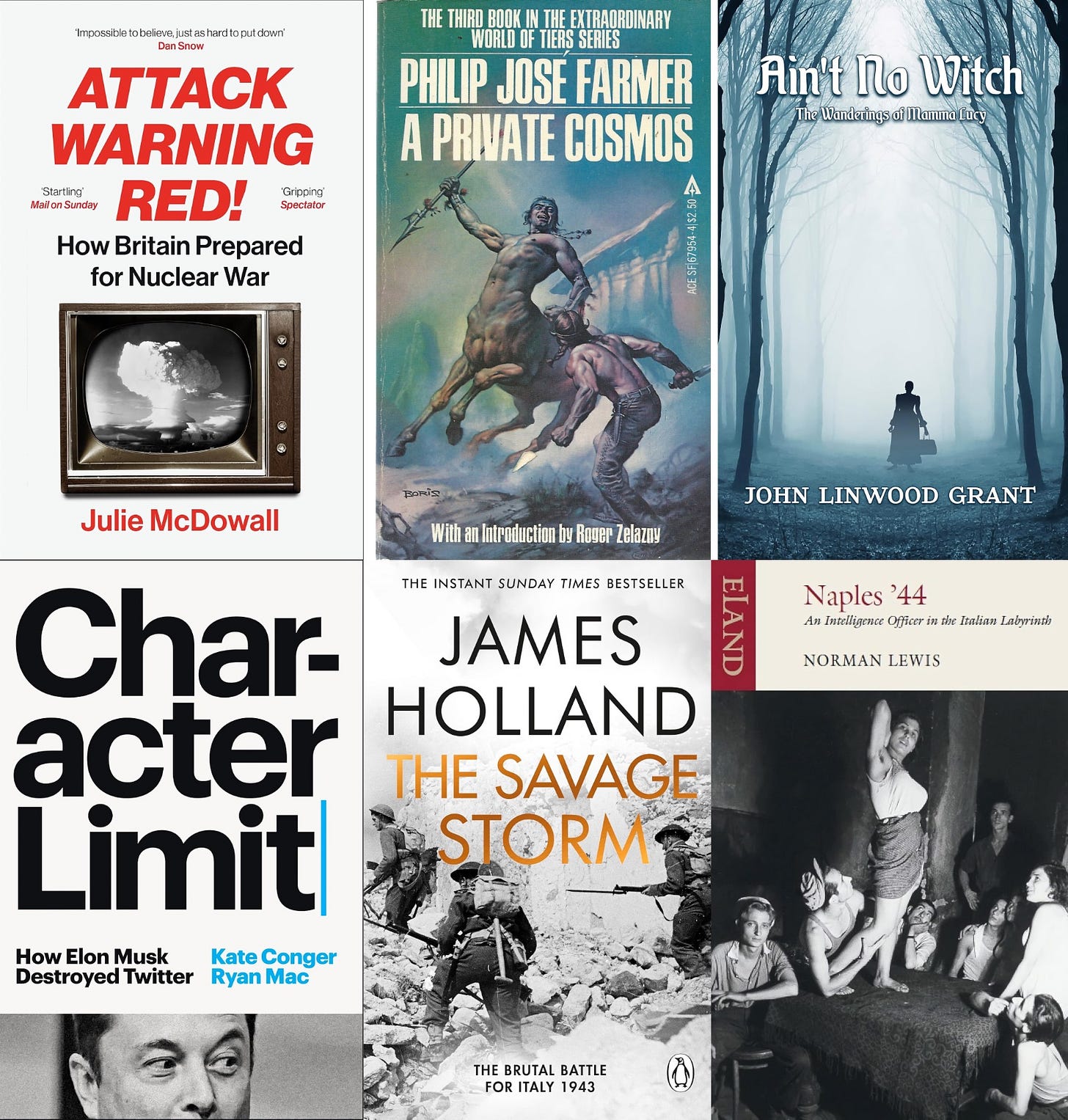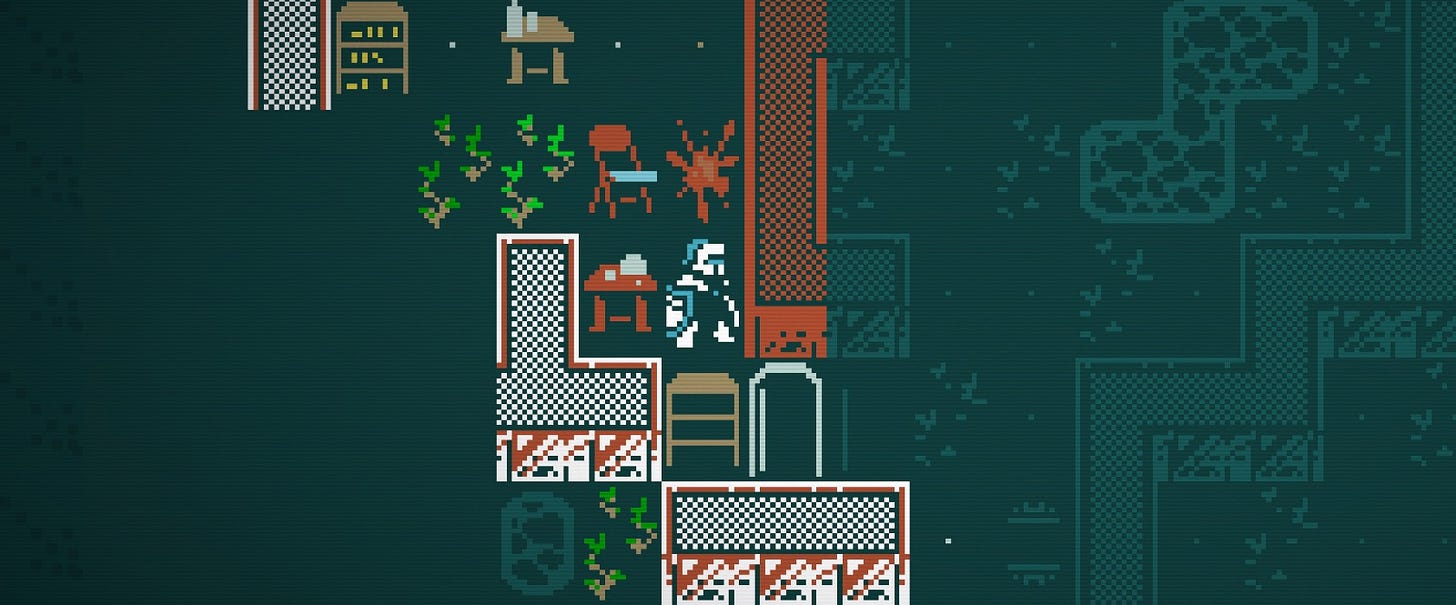It’s finally starting to feel like Spring, with warm, still days (perfect for archery, my other passion). I’m getting back into the swing of writing again, after a year’s hiatus, with several projects lined up. Here’s a summary of my next book, and what I’ve been reading and playing in April.
Writing
I’m halfway through the edits for my next novel, The Blocko Tower, so I thought I’d show you the Beta version of the cover, along with the photograph I took of the Barbican Estate, which I used in the design.
The Blocko Tower is a fantasy horror novel set in the 1980s. Sally had a childhood friend, Eva, who invited her to play in an immense block of flats called Backenforth Heights. But the adults told her she’d imagined it all, and Eva and the tower didn’t exist. So why, twenty years later, is Sally seeing Backenforth Heights again, but in different cities? They say that those who enter disappear forever, or go insane. What power is drawing her towards its seemingly infinite levels? Will she go mad as well, or does her best hope lie in an alliance with those who claim to have been hunting it, and its demon lord, down through the centuries?
The book should be ready for release in Summer, in the meantime, please check out my other books.
Books Read in April
Attack Warning Red: How Britain Prepared for Nuclear War, Julie McDowell, 2023
A short, but fascinating, book about the totally useless preparations for nuclear attack in the UK, from the 1950s through to the late 1980s. Nobody dared acknowledge the complete horror and destruction that would happen, and so, at the beginning, the powers-that-be tried to make out it would be like the Blitz all over again. Relief for survivors would be provided in the shape of cups of tea and blankets, courtesy of volunteer organisations like the Women’s Institutes. After the H-bomb consigned previous planning to the dustbin, the government switched to the Thatcherite ‘there-is-no-such-thing-as-society’ message. Now it was every man for himself, cowering under a propped-up door when the bomb went off, and surviving on whatever tins and bottled water they’d managed to scrounge beforehand. Chilling and comedic in equal halves.
A Private Cosmos, Philip José Farmer, 1968
I think that’s enough of The World of Tiers series for the time being. While the world building is great, and the whole concept of pocket universes ruled by capricious gods highly imaginative, the style is clunky and uneven, sometimes to a painful degree. The novel also suffers from attitudes lodged very firmly in the mid 1960s, especially in its treatment of women. I don’t think I can face another four books in the series right now, but will return at a later date.
Ain’t No Witch: The Wanderings of Mamma Lucy, John Linwood Grant, 2024
A book like this shows just how far SF/Fantasy/Horror has come since the days of A Private Cosmos. John Linwood Grant’s Ain’t No Witch is a truly magical and brilliantly evocative collection of stories about the itinerant conjure woman Mamma Lucy, who wanders through 1920s America, tackling ghosts, demons, and the brutality of the Jim Crow laws. Linwood Grant does a fantastic job of capturing the language, culture and creepy atmosphere of the haunted Deep South (and elsewhere). Highly recommended.
Character Limit: How Elon Musk Destroyed Twitter, Kate Conger & Ryan Mac, 2024
“…Elon’s power and money means nothing stops him from making bad decisions based on his own limited experience.”
While Walter Isaacson’s Elon Musk went some way to explain why Musk behaves the way he does, there’s a point long passed where the excuses have to stop. Essentially he is a man with no impulse control, possessing of limitless wealth and power, and surrounded by sycophants who agree with him on everything (if you don’t, you’re fired). Twitter was declining when he took it over, and he just drove it into the ground. The first half of the book is about the wheeling and dealing behind his takeover, the second is a slow car crash of endless firings, tantrums and deeply offensive and self-destructive behaviour. At the time of writing this, Tesla’s collapsing profits and shares show that there is (thank God) a price to pay for his endless arrogance and stupidly nasty provocation.
The Savage Storm: The Brutal Battle for Italy, 1943, James Holland, 2023
This covers the first part of the Allied Italy Campaign in 1943, a brutal slog that fell on the shoulders of the PBI (Poor Bloody Infantry) who had to fight their way through mountainous terrain that the tanks couldn’t pass. The operation was characterised by World-War-I levels of high lethality, partly due to the landscape either channelling forces into long narrow gulleys with little cover, or blocking their path with rivers that flooded in winter. Holland pays more attention to individual on-the-ground stories than the historian Antony Beevor, drawing heavily on accounts by people like Norman Lewis (see below), which cast light on the human cost. It’s long, and gets repetitive and pretty depressing towards the end. Very much a book for those interested in military history. Others might find it heavy weather.
Naples ’44: An Intelligence Officer in the Italian Labyrinth, Norman Lewis, 1978
Recommended by the actor Richard E Grant in his BBC series Write Around the World. This provided a lot of the material for James Holland’s book (see above). The book recounts Lewis’s time as a British Army Intelligence Officer in Naples after the Salerno landings (1943-44). Very Graham Greene - a dispassionate outsider drawn in to the personal lives of Italians suffering extreme deprivation. Full of beautifully observed characterisation and descriptions of the population trying to survive amid the war-torn landscape. Once in a while, he drops in a sentence of such chilling brutality and horror, that it’s real cold dash of water to the face. An involving and gripping narrative of the aftermath of war.
Games
Caves of Qud
Caves of Qud has been nominated for a Hugo Award at the World SF Convention in Seattle this year. It’s an old-style roleplaying game set in a bizarre world, hundreds of thousands, if not millions of years, in the future. Countless empires with unimaginable technologies have risen and fallen, their ruins compacted one upon the other in strata that plunge deep below the Earth’s crust. These form the mysterious Caves of Qud. In the meantime, life on the surface has changed beyond all recognition, populating the world with symbiotic mutants, cybercreatures, intelligent animals and murderous plants etc. etc.
Caves of Qud is lethal if you play it on classic perma-death (I racked up 130 hours without getting any further than the first quest), but there are more forgiving modes that allow you to save your progress. The system is simple, but the world contains incredible complexity and depth. Limitless combinations of technology, creatures, skills and lore mean that every playthrough is unique, and rich with emergent storytelling. The graphics are as retro and basic as you can get, which means that all the developers’ efforts have gone into the ridiculously detailed world-building, rather than spectacular ray-traced visuals that demand a high-spec PC to run. It’s turn based, so you can take your time without the frantic key-mashing of other games. If you enjoy Gene Wolfe’s Book of the New Sun, Jack Vance’s Dying Earth series or the hallucinatory universe of Jean Giraud (aka Moebius) this game is a must.
Lego Perseverance
Finally, in a world that seems to be rapidly degenerating into a morass of ignorance and hate, it’s worth remembering some of the things humanity has achieved that represent us at the height of our scientific ingenuity. Well, that’s my excuse for treating myself to the Lego Perseverance Mars Rover, which I had great fun building. The real car-sized article has now been on Mars since February 2021, trundling across dry river beds looking for signs of ancient life. Unfortunately, the little helicopter drone accompanying it smacked into a sand dune on its 71st flight, and lost a propeller blade, rendering it inoperable. The movie of the rover’s landing on Mars, which Perseverance beamed back to Earth, has to be one of the most jaw-dropping pieces of film I’ve ever seen.
That’s all for this month’s newsletter. Please feel free to comment, as all feedback is very welcome.
John








I like the sound of the new one. Will look out for it. Have to catch up on Banjo first though.